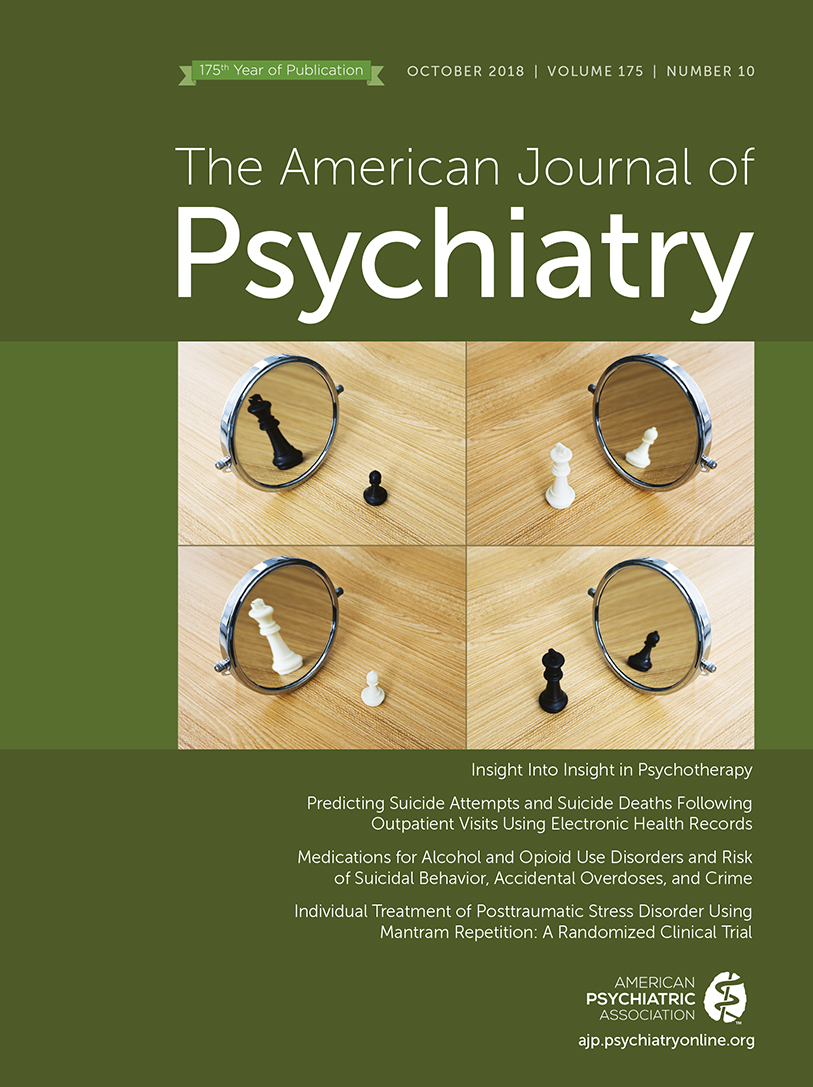Individual Treatment of Posttraumatic Stress Disorder Using Mantram Repetition: A Randomized Clinical Trial
Abstract
Objective:
Previous studies suggest that group “mantram” (sacred word) repetition therapy, a non-trauma-focused complementary therapy for posttraumatic stress disorder (PTSD), may be an effective treatment for veterans. The authors compared individually delivered mantram repetition therapy and another non-trauma-focused treatment for PTSD.
Method:
The study was a two-site, open-allocation, blinded-assessment randomized trial involving 173 veterans diagnosed with military-related PTSD from two Veterans Affairs outpatient clinics (January 2012 to March 2014). The mantram group (N=89) learned skills for silent mantram repetition, slowing thoughts, and one-pointed attention. The comparison group (N=84) received present-centered therapy, focusing on currently stressful events and problem-solving skills. Both treatments were delivered individually in eight weekly 1-hour sessions. The primary outcome measure was change in PTSD symptom severity, as measured by the Clinician-Administered PTSD Scale (CAPS) and by self-report. Secondary outcome measures included insomnia, depression, anger, spiritual well-being, mindfulness, and quality of life. Intent-to-treat analysis was conducted using linear mixed models.
Results:
The mantram group had significantly greater improvements in CAPS score than the present-centered therapy group, both at the posttreatment assessment (between-group difference across time, −9.98, 95% CI=−3.63, −16.00; d=0.49) and at the 2-month follow-up (between-group difference, −9.34, 95% CI=−1.50, −17.18; d=0.46). Self-reported PTSD symptom severity was also lower in the mantram group compared with the present-centered therapy group at the posttreatment assessment, but there was no difference at the 2-month follow-up. Significantly more participants in the mantram group (59%) than in the present-centered therapy group (40%) who completed the 2-month follow-up no longer met criteria for PTSD (p<0.04). However, the percentage of participants in the mantram group (75%) compared with participants in the present-centered therapy group (61%) who experienced clinically meaningful changes (≥10-point improvements) in CAPS score did not differ significantly between groups. Reductions in insomnia were significantly greater for participants in the mantram group at both posttreatment assessment and 2-month follow-up.
Conclusions:
In a sample of veterans with PTSD, individually delivered mantram repetition therapy was generally more effective than present-centered therapy for reducing PTSD symptom severity and insomnia.



